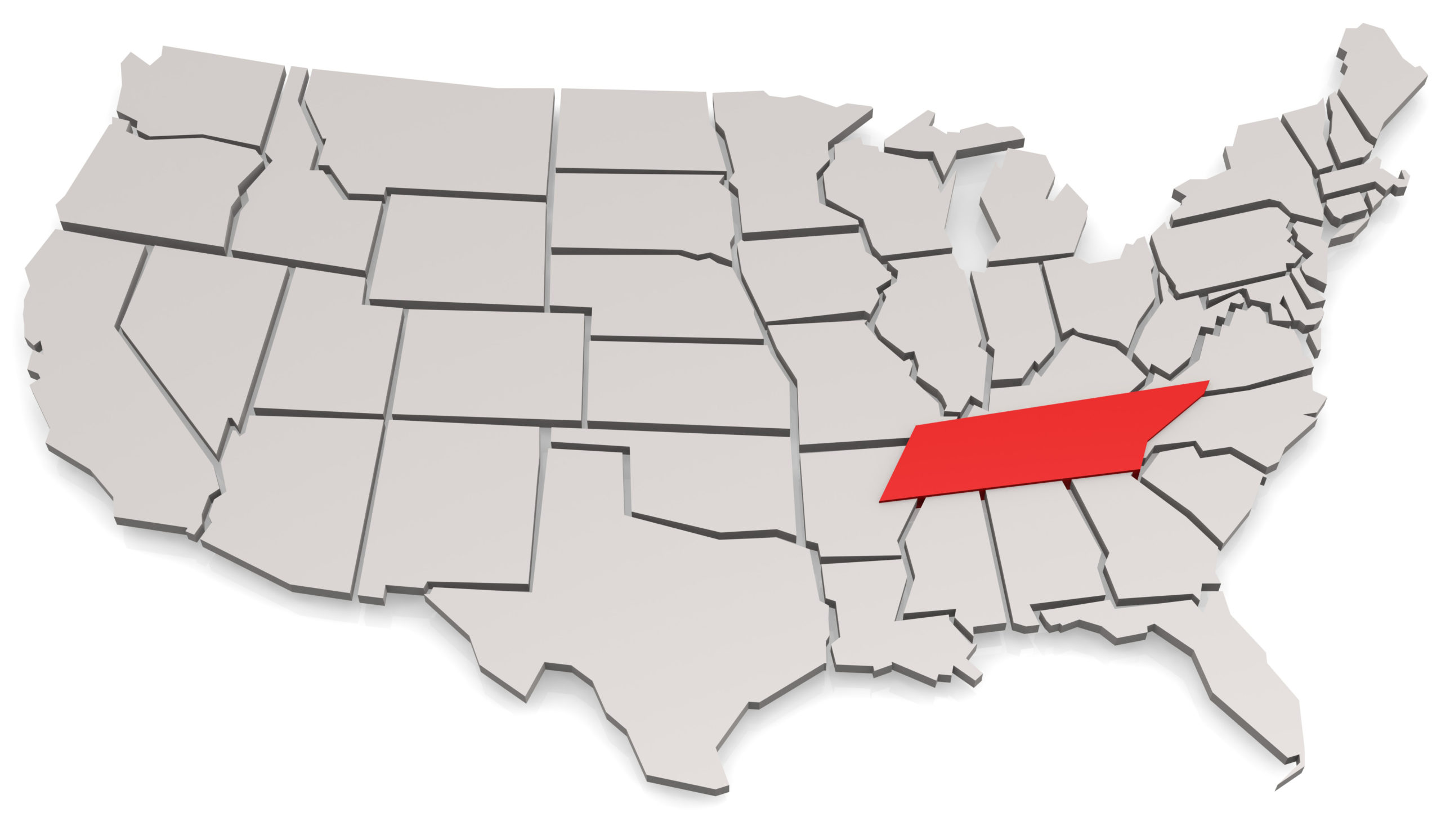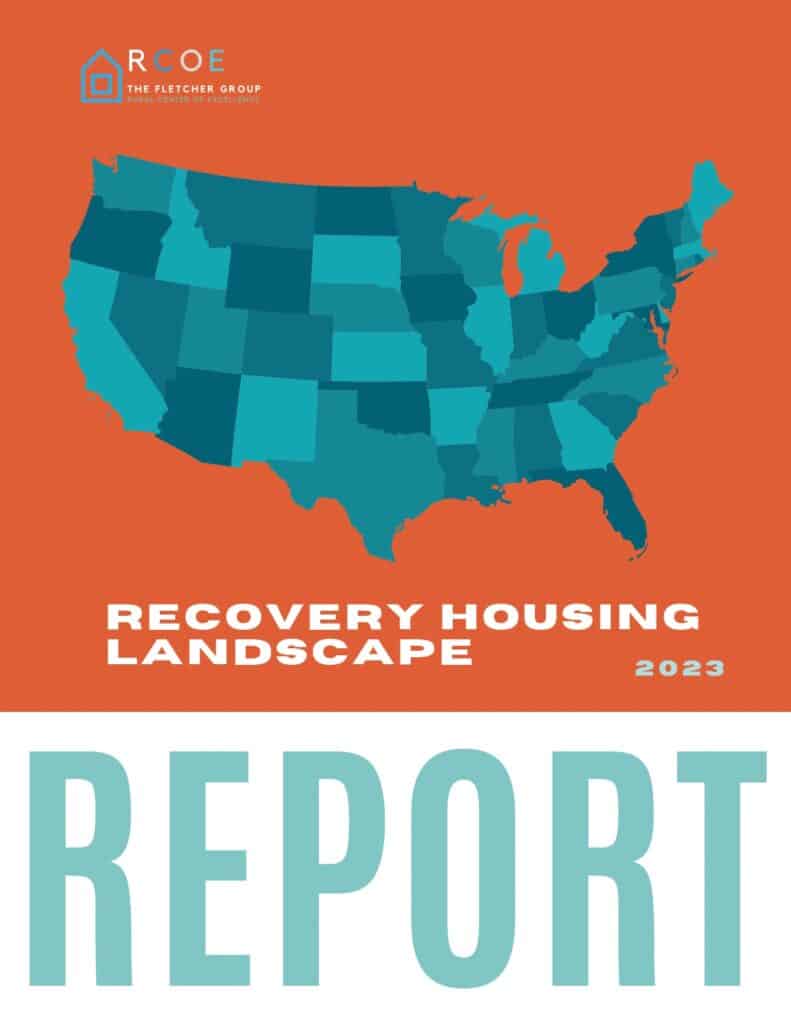
Tennessee State Laws, Policies and Funding
RH terminology used by the Tennessee Department of Mental Health and Substance Abuse Services (TDMHSAS)
Recovery Housing
https://www.tn.gov/behavioral-health/substance-abuse-services/treatment—recovery/treatment—recovery/recovery-housing.html
Accreditation, Certification, and State Licensing Requirement: Certification required for state funding and for referral to a home.
RH Law(s): HB 215 – SB 207 (2021) Requires the Department of Mental Health and Substance Abuse Services (DMHSAS) to establish and maintain a list of approved recovery residence organizations on its website. Requires recovery residences that are not recognized or certified by an organization or funded by a state or federal department or agency to display in a prominent place within the recovery residence, a sign stating certain disclaimers and information. Requires the Department of Correction (DOC) to recognize the approved recovery residences as approved placements for those persons with substance use disorder to community supervision; indicate which placements on any list of placements for community supervision are approved recovery residences; and establish a preference for approved recovery residences by encouraging placements in the residences, among other provisions.
TN HJR 399 (2019) A resolution to recognize recovery houses in Tennessee that use the Medication Assisted Treatment (MAT) for Opioid Use Disorder. https://publications.tnsosfiles.com/acts/111/resolutions/hjr0399.pdf
RH Legislation: None/unknown
Regulations: None/unknown
SABG Program: The “Planned Priority Areas” documents for your state’s Substance Abuse Prevention and Treatment Block Grant (SABG) program and Community Mental Health Services Block Grant (MHBG) program specifically mention recovery housing as a priority, nor do they list recovery support services as an allowable activity. To learn more about specific recovery housing activities that are eligible for funding through these grant programs, please reach out to your state’s Single State Agency (SSA) that’s responsible for administering these funds by visiting https://www.tn.gov/behavioral-health.html
According to WebBGAS, this state has indicated that it has established a revolving loan fund using SABG funds to develop RH for individuals in recovery.
SOR Program: Your state’s Department of Health and Social Services (DHSS) has previously funded recovery activities using State Opioid Response (SOR) funds. To learn more about specific recovery housing activities that are eligible for funding through this grant program, please reach out to your state’s Single State Agency (SSA) that’s responsible for administering these funds by visiting https://www.tn.gov/behavioral-health.html
Medicaid Funding: Nothing in the state Medicaid plan suggests direct support for RH, however, certain covered activities could evolve to be provided in RH settings to include peer support, case management, counseling, and supported employment. https://www.tn.gov/content/dam/tn/tenncare/documents/UnitedHealthcareAdministrativeManual.pdf
NARR Affiliate Status: Yes, the Tennessee Association of Recovery Residences (TN-ARR)
Housing Assistance Funding: https://thda.org/
Certified Recovery Residences – www.tnarr.org
Tennessee Funders
The Community Foundation of Middle Tennessee
The Community Foundation of Middle Tennessee was founded in 1991 and aims to enhance well-being and quality of life for all Middle Tennessee residents and communities. The Foundation is based in Nashville with affiliates based throughout the state.
Regions: The Community Foundation of Middle Tennessee serves the 43 rural and non-rural counties that are designated as Middle Tennessee. Affiliate foundations include the Cheatham County Community Foundation; the Community Foundation for Dickson County; the Community Foundation of Rutherford County; the Community Foundation of Robertson County; the Community Foundation of Wilson County; the Cumberland Plateau Community Foundation; the Community Foundation of Christian, Todd and Trigg Counties; the Community Foundation of Clarksville/Montgomery County; the Goodlettsville Area Community Foundation; and the Tullahoma Community Foundation.
Issue Areas: Arts and culture, education, health, and human services are key funding focuses. The Foundation works with affiliate funders throughout Middle Tennessee, to identify and address the issues unique to specific communities.
Grant Process and Application: Deadlines for grant applications are usually in the summer months. More information regarding grant applications can be found on the website.
Grant-Making Per Year: Since its establishment, the Foundation has awarded $1 billion in grants to nonprofits across Middle Tennessee. In 2020, the Foundation provided grants in the amount of $2.4 million to nonprofits across Middle Tennessee.
Recovery and Supportive Housing Grantee Example: The Renewal House in Nashville, Tennessee is an organization that provides comprehensiveservices for women recovering from substance abuse and mental health issues. The Renewal House provides housing for women in recovery, while also offering family-centered programs for their children.
The Healing Trust
The Healing Trust, formerly known as the Baptist Healing Trust, is a health conversion foundation formed after Baptist Hospital was sold to Ascension Health/St. Thomas Health Services. Since its formation in 2002, the Trust has provided $100 million to Middle Tennessee.
Regions: The Healing Trust serves all Middle Tennessee, including both rural and non-rural counties.
Issues Supported: Grants are made to non-profit groups in rural Middle Tennessee to address physical or mental health, substance abuse recovery, and healing from abuse or violence. Four types of grants are available: multi-year advocacy grants, operating grants, staff support grants, and sabbatical grants.
Grant Process and Application: Grant-making is temporarily paused to allow for strategy and impact reflection and will resume in 2022. Application deadlines will be announced at that time. More information regarding the application process can be reviewed here. While the grantmaking cycle is paused, the Healing Trust continues to encourage nonprofits whose leaders are Black, Indigenous, or People of Color to contact grants@healingtrust.org regarding funding outside of the grant process.
Grant-Making Per Year: In 2020, the Healing Trust provided 92 grants in the amount of $3.1 million. In 2019, the Trust provided 81 grants in the amount of $2.5 million. Total giving since 2003 exceeds $96 million.
Recovery and Supportive Housing Grantee Example: Based in Murfreesboro, Tennessee, Doors of Hope provides transitional housing and sober living for women recovering from substance use disorder. Doors of Hope provides services that help these women reintegrate into society following treatment or incarceration.
Tennessee Opioid Settlement Funds
Total Settlement Funds in Tennessee
- $600 million
Fund Distribution
- 70% to the Opioid Abatement Fund
- 15% to the state
- 15% local governments
Timeline
- Funds from three distributors will be paid over 18 years
- Funds from Johnson & Johnson will be paid over 9 years
Application Process
- Not established
Key Contacts
- Office of the Attorney General Herbert H. Slatery III, 615-741-3491
Key Links
How About Your County?
To get a quick overview of the resources available in your county, including gaps that may need to be addressed, visit the Recovery Ecosystem Index Map developed through a partnership between the Fletcher Group Rural Center of Excellence, the NORC Walsh Center at the University of Chicago, and East Tennessee State University.
Need More Info?

A year in the making by a staff of ten, the Fletcher Group’s 82-page Recovery Housing Landscape Report provides an in-depth overview of the most recent laws, policies, and funding affecting recovery housing. You’ll find sections devoted to state laws, SAMHSA funding, Medicaid, corrections, and housing assistance plus numerous links to valuable resources and official documents. To see the complete downloadable report, click the image to the left.
This web page is supported by the Health Resources and Services Administration (HRSA) of the U.S. Department of Health and Human Services (HHS) as part of an award totaling $13.7 million with 0% financed with non-governmental sources. The contents are those of the author(s) and do not necessarily represent the official views of, nor an endorsement, by HRSA, HHS, or the U.S. Government.